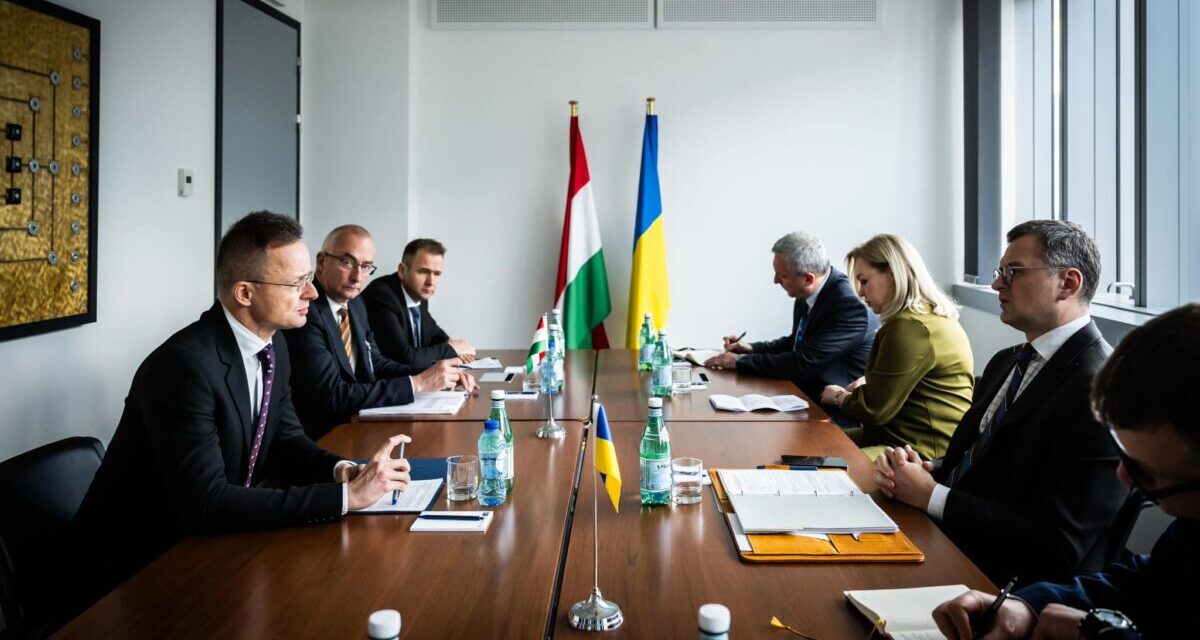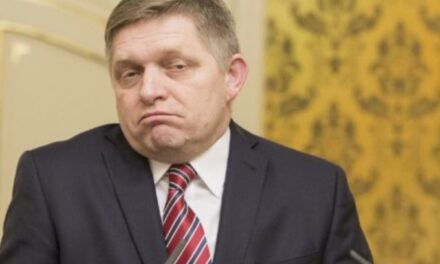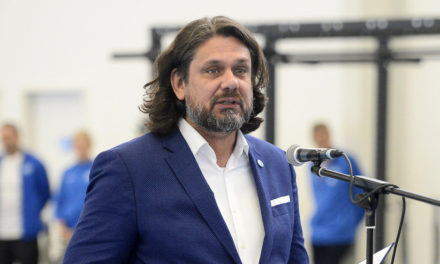The focus is on economic developments.
Péter Szijjártó negotiated with Dmitro Kuleba for about an hour, to whom he also handed over an action plan.
Hungary handed over an action plan to Ukraine, in which proposals were made for the development of cross-border economic cooperation and the creation of special economic zones, Minister of Foreign Affairs and Trade Péter Szijjártó informed in Washington on Wednesday.
Speaking about the NATO summit, the head of the ministry reported that he had discussed with his Ukrainian counterpart for about an hour the day before, during which he also handed over an action plan.
He pointed out that in this regard, proposals were made for the development of cross-border economic cooperation and the creation of special investment and economic zones on both sides of the border.
I proposed the construction of new border crossings, the renovation of the Tisza bridge and new railway connections, and also that we should strengthen our cooperation in the field of energy, because it is obvious that if two neighboring countries cooperate, it can mutually improve energy security," he listed.
"I made a proposal to increase this in terms of educational and humanitarian cooperation as well. So we hope that this new action plan, which places our relations in a different development framework, will be able to be created," he added. He also announced that his Ukrainian official partner would study the Hungarian action plan and send back his proposals.
Péter Szijjártó also spoke about the fact that the Kyiv government highly valued the previous week's Hungarian-Ukrainian summit in the light of the previous day's negotiations.
It is clear that the positions regarding the war between the warring parties are very far from each other.
It is also clear that we look at the possibility of a ceasefire and peace negotiations differently, he stated.
"Therefore, a lot of work still needs to be done here in order to really reach peace, but we need to work on it, because what we have been saying for weeks is unfortunately being proven every day, because there is a very serious, very serious risk of escalation," he continued.
The events of war are becoming more and more brutal at the front, which is obviously a consequence of the fact that there are more and more weapons on both sides of the front line.
If those weapons are there, they will be used against each other, and we see the cruel consequences, like the attack on the children's hospital, it breaks one's heart," he said.
He also warned of the serious danger of escalation, stressing that this and other brutal events can be avoided by ending the war as soon as possible. "The sooner there is a ceasefire, the fewer people die, the sooner there is a ceasefire, the less brutality can happen on the front line," he said.
In the end, the minister also mentioned that he and his Ukrainian colleague determined that the start of Ukraine's EU accession negotiations opens a kind of new chapter in the cooperation between the two countries, since Kyiv undertook to restore the assumed rights of the Hungarian national community before the EU.
"From now on, this is no longer formally just a bilateral issue, but has become a European issue, because the framework decision on Ukraine's accession negotiations, which was adopted by the European Union, contains this clause," he underlined.
"From now on, we in Brussels must constantly be held to account for this, we must pay attention to the fact that the rights of the national community are returned. This, in turn, gives us the opportunity to conclude a new bilateral agreement on the development of cooperation between the two countries at a level that is good for Ukraine and good for Hungarians," he concluded.
MTI
Cover photo: Péter Szijjártó and Dmitro Kuleba during a previous meeting in Brussels
Source: Facebook/Péter Szijjártó













